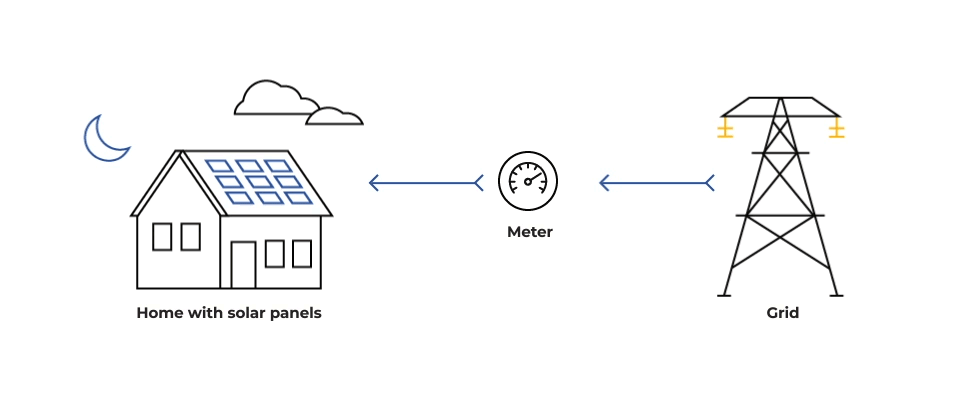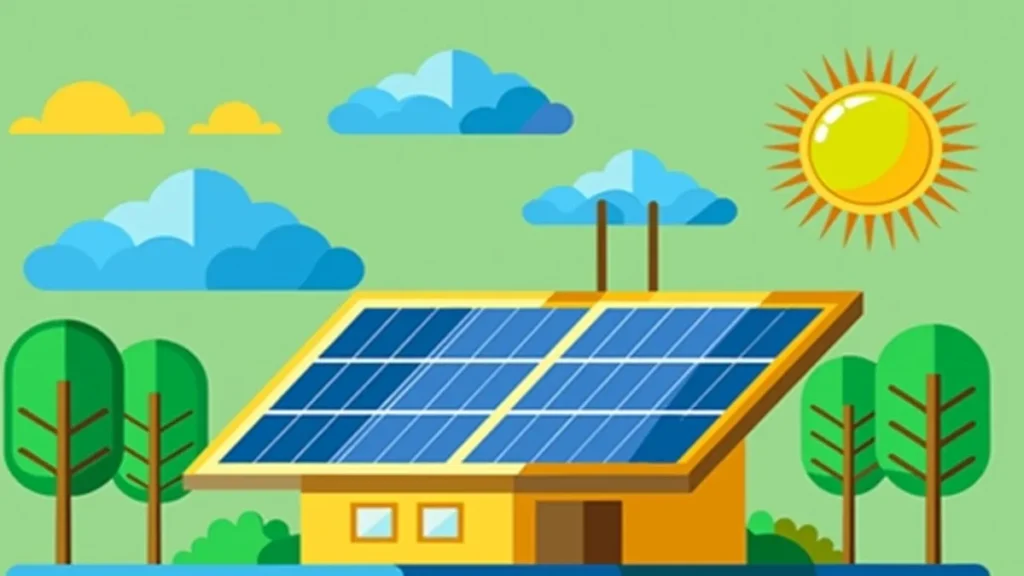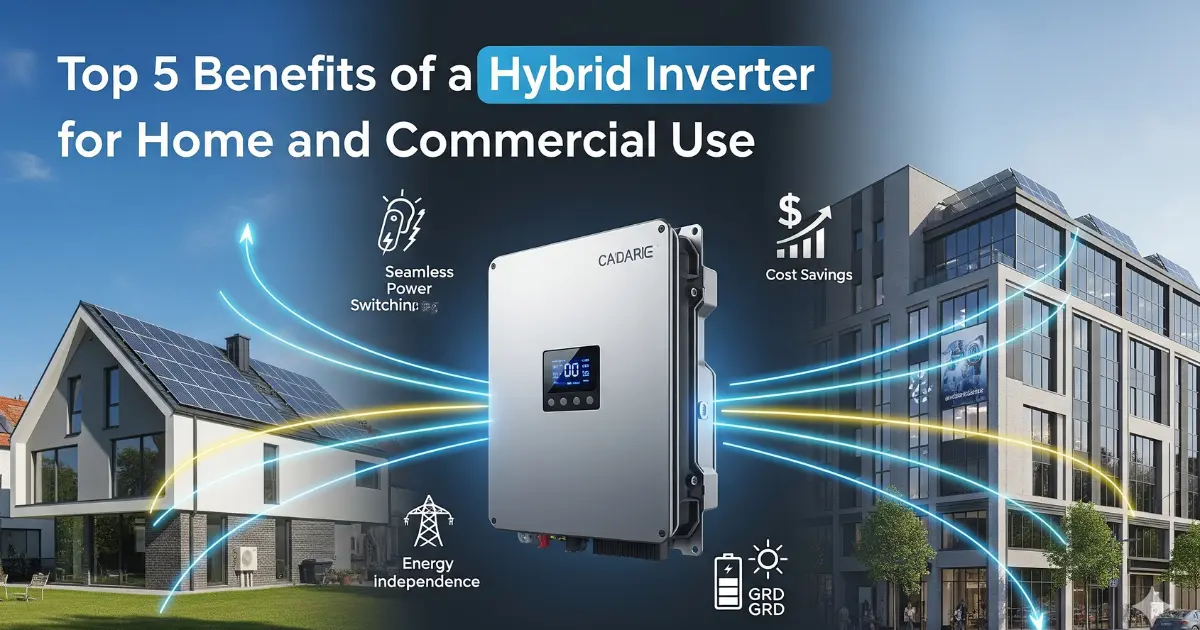Benefits of Hybrid Inverters: A hybrid inverter combines the best of on-grid and off-grid systems. It lets you use solar power, store excess energy in batteries, and stay connected to the grid for backup.
This means lower electricity bills, reliable power during outages, better ROI, and long-term savings making it a smart choice for both homes and businesses in India.
What is a Hybrid Inverter?
A hybrid inverter is a device that manages solar panels, grid electricity, and battery storage together. Unlike a normal on-grid inverter (which shuts down during power cuts) or an off-grid inverter (which depends only on batteries), a hybrid inverter gives you the flexibility of both worlds. Leading companies such as Sungrow Power Supply Co., Ltd., Huawei Technologies Co., Ltd., Schneider Electric SE, and Delta Electronics, Inc. are some of the key players manufacturing advanced hybrid inverters that are widely used in residential, commercial, and industrial solar projects.
Think of it as the “brain” of your solar system that decides where the power comes from solar, grid, or battery based on demand and availability.
Key Features of a Hybrid Inverter:
- Multiple Power Sources: Draws energy from solar, battery, and grid as needed.
- Battery Storage Integration: Stores excess solar power for use during outages or high-demand periods.
- Grid Interaction Capabilities: Allows users to export energy to the grid, potentially earning credits.
- Smart Monitoring and Automation: Enables real-time tracking of energy consumption and automated energy management.
Top 5 Benefits of Hybrid Inverter
1. Reliable Power During Outages
India faces frequent power cuts, especially in Tier-2 and Tier-3 cities. With a hybrid inverter, your solar system continues running during outages using stored battery power.
Real Experience: In Hyderabad, the Reddy family installed a 5kW hybrid system with 10kWh battery. During 6–8 hours of summer outages, they kept running their ACs and fans without relying on diesel generators.
2. Lower Electricity Bills with Net Metering

Hybrid inverters allow you to export excess solar power to the grid (like on-grid systems) while still using batteries for backup. This way, you earn credits through net metering and reduce dependency on grid power.
ROI Example:
- System: 5kW Hybrid
- Monthly Bill Before: ₹7,000
- Monthly Bill After: ₹1,800
- Savings: ~₹60,000 per year
- Payback: 5–6 years
3. Future-Ready Energy Storage
Hybrid inverters support lithium and lead-acid batteries, giving flexibility to upgrade later. Even if you don’t install batteries right away, you can add them later as prices fall.
This “battery-ready” feature is why many new homeowners prefer hybrid inverters over traditional on-grid models.
4. Better Efficiency & Smart Energy Management
Modern hybrid inverters come with smart monitoring apps where you can track solar generation, consumption, battery status, and grid usage in real-time.
For businesses, this means optimized energy use running heavy loads during the day on solar and shifting lighter loads to batteries at night.
5. Higher ROI & Long-Term Savings
Though hybrid inverters cost more than regular ones, the extra savings and backup benefits justify the investment. Businesses also avoid losses during outages, which improves productivity.
Commercial Example:
A textile unit in Surat installed a 50kW hybrid system. Earlier, they spent ₹40,000/month on diesel during power cuts. With hybrid solar, fuel costs dropped to nearly zero recovering investment in 4.5 years.
Cost of Hybrid Inverters in India (2025)
- Residential (3kW–5kW): ₹70,000 – ₹1.2 lakh
- Commercial (10kW+): ₹2.5 – ₹6 lakh
- Battery Cost (optional): ₹8,000–₹12,000 per kWh (Lithium)
Subsidy & Government Support (2025)

Under PM Surya Ghar Yojana, rooftop solar systems up to 10kW (including hybrid) are eligible for subsidies:
- Up to 40% subsidy for 1–3kW systems
- 20% subsidy for 3–10kW systems
This can reduce costs by ₹70,000–₹1.2 lakh for residential buyers.
FAQs about Hybrid Inverters
What’s the difference between a hybrid and on-grid inverter?
Can I add batteries later to a hybrid inverter?
Is subsidy available for hybrid inverters?
Do hybrid inverters support heavy loads like ACs and refrigerators?
How long do hybrid inverters last?
Final Verdict on Benefits of Hybrid Inverters
If you live in a city with frequent power cuts or a business where downtime is costly, a hybrid inverter is the best choice. It offers the backup of off-grid systems and the savings of on-grid systems, delivering reliable power and better ROI.
For Indian homes in 2025, hybrid inverters strike the perfect balance between cost, efficiency, and reliability.






